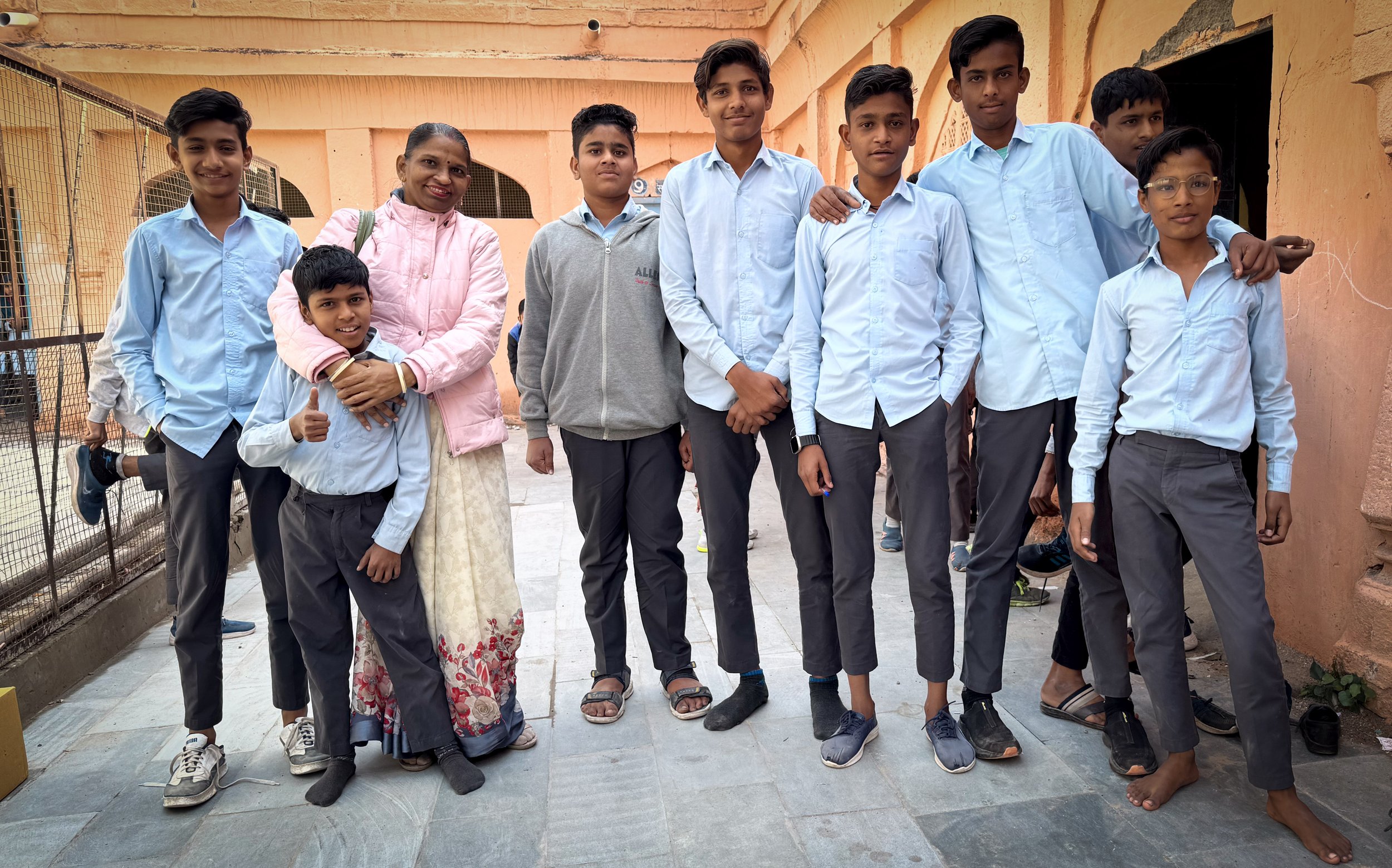Seeking the Ideal for the Children of Jodhpur
Edited by Carlea Bauman and Ellie Hamburger
Sambhali Trust works to protect the children of Jodhpur from sexual abuse and helps teens navigate puberty through its Aadarsh program. Led by staff member Vimlesh Solanki, it was the first educational program to address the issue of sexual abuse openly in Jodhpur. Aadarsh means “ideal” in Hindi. The workshops are given to girls and boys because all children and youth are vulnerable to abuse. In February 2025, Sambhali U.S. Board Member Ellie Hamburger spoke to Vimlesh about the program. A transcript of the conversation follows. It has been edited for clarity.
Ellie Hamburger: Can you explain a bit about Aadarsh? How it got started? And who you teach it to?
Vimlesh Solanki: “No Bad Touch,” to teach younger kids, nursery to 5th grade, about sexual abuse began in 2014. “Save Youth/Save Nation,” the program for teenagers about puberty started in schools in 2019.
When we began, we’d go to schools and talk to principals and they always said, “We already do this program, and we already give the kids a lot of information.” But we insist to them to try it with one class and see. After they saw the program, they realized, “Yes, you have lots of information and you make it interesting with puppets for younger kids and they all understand.”
We have different kinds of programs for different age groups, and we decide how to give the information to them. Sometimes we give them a lot of information. For the very young kids, 3 and 4 years old, they don’t understand fully, so we give examples, we let them play with the puppets and we explain things so they can understand.
EH: So you have this innovative approach for the younger children, as young as 3, up through about 10 or 11?
VS: We do No Bad Touch workshops up to 12 years old.
EH: And then for the adolescents, for the teenagers, and the older children, your focus is more on puberty but also on preventing abuse, is that right?
VS: Yes. We bring presentations about puberty that the students don’t get otherwise using lots of pictures, making it easier to explain the concepts. Usually, we present the information to boys and girls separately, so they feel comfortable asking questions.
EH: I had the opportunity to watch you give one of these workshops to a group of boys with the pictures and it went really well. You got the boys interacting. They were clearly learning.
VS: For our workshops, there is a lot of information because in India, nobody talks about this in families. I give this workshop and talk about it with boys and girls in my own family and elder members of my family don’t agree with giving this information. I tell them, “It’s good information and when we give it to them, boys respect girls and girls fully understand all of these issues." The children love the information but sometimes…
EH: …It goes against some traditions…
VS: Yes.
EH: Don’t you include also in your workshops for teenagers something about social media and the internet?
VS: Yes. We explain to them about social media. Because teens get a lot of information from it. They see pictures and may get information that isn’t right. So sometimes girls and boys understand these things but sometimes they don’t.
EH: Lots of times teenagers feel like they are all alone with whatever is happening to them. This program where you teach the children very early about No Bad Touch and then for the teenagers understanding what’s happening in their bodies and their emotions and any problems they have sounds like it’s new for this community and it’s a really important service.
VS: Yes. It’s very important and we say to parents, “If your children have some problems, they will tell you somehow. Some children are open; they talk to their parents very clearly. But some have problems; they will say it indirectly. If you don’t pay attention, you won’t see." Last December, a girl tried to tell her mother [about abuse she was being subjected to] but her mother didn’t understand, and the girl attempted suicide.
EH: And this is the kind of program that prevents that sort of thing because it gives them the opportunity to have a voice and to know how to address their problems.
VS: Yes. I tell the children how they can talk to their parents. “If you have a problem, you say it directly because your parents don’t understand." When I go to schools I also talk to the principals and ask that they arrange a workshop for the parents too, but they don’t see the point.
EH: So, parent workshops may be something you’ll do in the future?
Vim: Maybe. We have done some but it’s up to the principals.
EH: Well, the work you’re doing is so important and it’s wonderful that the schools recognize how well you do it, so they bring you in.
VS: Sometimes the teachers and management tell us they are having problems. Schools have had cases where their students were being sexually harassed or abused, and they invited us to do the workshop.
EH: Such important work. We really appreciate you explaining it to us today.



